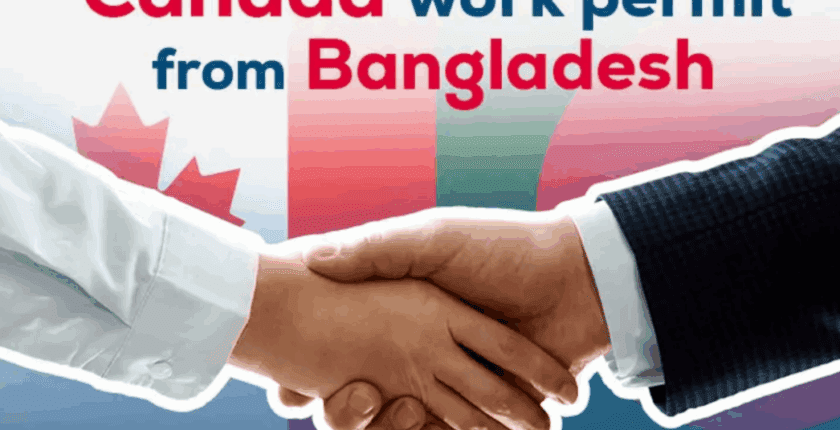Finding Work in Canada: A Guide for Bangladeshi Job Seekers
For many skilled workers from Bangladesh, Canada is more than just a destination; it’s a gateway to stability, opportunity, and a brighter future for families. If you’re considering how to make this dream a reality, know that while it may seem complex, the journey to working in Canada is entirely attainable with the right guidance. In fact, in 2023, over 5,000 Bangladeshi nationals successfully transitioned to Canadian permanent residency, often through pathways linked to employment. Let’s explore some practical steps to help you navigate this significant life change.
Understanding the Pathways to Employment in Canada
Finding a job in Canada entails selecting the right immigration route. The two primary methods include the Express Entry system and Provincial Nominee Programs (PNPs). The Express Entry is notably the fastest and uses a points-based system known as the Comprehensive Ranking System (CRS) to assess candidates. Points are awarded based on factors like age, education, language proficiency (English or French), work experience, and any Canadian connections you might have. An employer’s job offer can give your CRS score a considerable boost—an extra 50 to 200 points can substantially increase your chances of receiving an invitation to apply for permanent residency.
Provincial Nominee Programs (PNPs), such as Ontario’s Human Capital Priorities Stream and British Columbia’s Tech Pilot, are excellent alternatives, particularly for individuals whose skills are in demand in specific regions. Professions like nursing, software engineering, and skilled trades are consistently sought after across Canada.
Work permits are another crucial pathway for Bangladeshi applicants. Generally, an employer must obtain a Labour Market Impact Assessment (LMIA), demonstrating that no qualified Canadian could fill the role. However, some permits can be LMIA-exempt under international agreements or company transfers. As of June 2023, the “Tech Talent Strategy” has simplified the work permit process for technology workers, and programs like the Global Skills Strategy offer rapid two-week processing for roles in high demand.
Steps to Securing Employment and Work Authorization
- Create a Job Search Strategy: Focus your job search on sectors experiencing labour shortages, including healthcare, IT, engineering, and skilled trades. Tailor your resume to Canadian norms—eliminating personal details and highlighting your accomplishments. Networking is essential; consider joining communities like “Bangladeshi Professionals in Canada” on social media to connect with others who have made the move or attend job fairs hosted by the Canadian High Commission in Dhaka.
- LMIA and Work Permit Process: If you’ve received a job offer, your employer must apply for an LMIA through Employment and Social Development Canada (ESDC). This process often requires them to advertise the job locally for at least one month. Following LMIA approval, you’ll receive a job offer to include in your work permit application. Don’t forget to submit this application alongside a police clearance, medical exams, and biometrics to IRCC, with processing typically taking 3 to 6 months.
- Complete Your Post-Job Offer Requirements: After getting a job offer, proceed with your work permit application through the IRCC portal. The typical processing time for a Temporary Resident Visa is about 12 weeks. Beyond paperwork, look into housing, healthcare (noting that provincial coverage often takes three months), and living expenses. Cities like Toronto and Vancouver can be quite costly, so consider more affordable options like Alberta or Manitoba.
Transitioning to permanent residency is a long-term goal, which can be achieved via Express Entry or PNP pathways. Canada is aiming to welcome around 110,000 immigrants through these economic programs in 2024—a golden opportunity indeed!
Financial and Logistical Considerations
Relocating involves financial planning. Keep in mind costs such as:
- LMIA fees: Typically CAD $1,000 (paid by the employer).
- Work permit fees: CAD $155 plus CAD $100 for biometrics.
- Proof of funds: You need access to at least CAD $13,757 as a single applicant unless you have a job offer.
- Initial move costs: This can range from CAD $2,000 to $4,000 for flights and initial setup.
Cultural adaptation is equally critical. Understanding Canadian workplace culture—which values punctuality, clear communication, and work-life balance—will be beneficial. Consider connecting with local Bangladeshi communities in cities such as Brampton or Calgary for support during your transition.
Enhancing Your Profile for the Canadian Job Market
Canadian employers often favour local credentials and soft skills. To stand out, consider obtaining:
- Canadian certifications: These can be found through platforms like Coursera or LinkedIn Learning.
- Volunteer experience: This demonstrates your commitment to community.
- Professional references: Include references from international supervisors whenever possible.
Finding a job may take some time—averaging 3 to 5 months—so stay persistent!
Securing your future in Canada from Bangladesh can be a rewarding and fulfilling journey. With over 500,000 job vacancies across the country, your skills are sought after. Begin creating your plan today!
Have your say!
Got a question, opinion, or experience to share about working in Canada? Leave a comment below and join the conversation.

